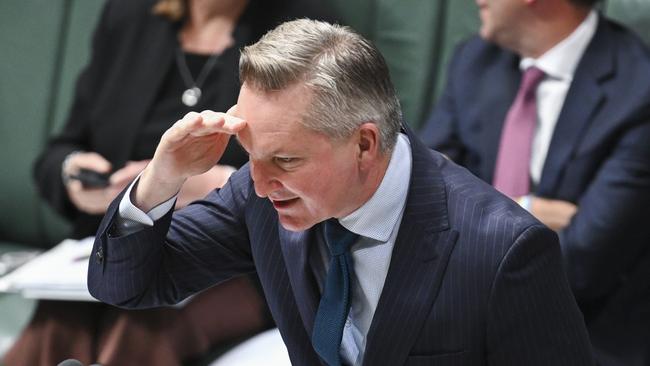Energy Minister’s arguments against nuclear riddled with errors

His opinion on this page on Tuesday argued that nuclear will mean more expensive electricity for consumers and that’s why a number of other G20 countries has already rejected it. He’s wrong.
Bowen claims CSIRO’s GenCost has found nuclear to be the most expensive form of energy every year since 2018.
In fact, it was only in 2024 – and just a few weeks ago – that GenCost finally included large-scale nuclear in its estimates. This cut costs by a factor of three over previous estimates for small modular reactors. Once realistic plant lifetime and capacity factors are included, the CSIRO’s numbers clearly show nuclear is competitive with renewables.
Bowen touts the CSIRO’s claim that nuclear plants will operate at as little as 53 per cent capacity. In reality, this will be closer to 90 per cent as the capacity factor of nuclear is driven by low marginal operating costs. For comparison, the average capacity factor for the US fleet is 93 per cent.
The 53 per cent figure assumes we will privilege wind and solar’s access to the grid over nuclear. The question remains as to why we would prioritise intermittent renewables that destabilise the grid over cheap, clean, reliable nuclear.
In California, a state with similar levels of renewables to Australia, the Diablo Canyon nuclear plant achieved a capacity factor of almost 90 per cent over the past five years.
Bowen claims expensive power plants can’t produce cheap power. However, the truth is that nuclear plants last 60 to 100 years, a much longer time frame than the CSIRO’s assumption of just 30 years. Their shorter time frame only considers how long investors are willing to wait to fully recoup upfront capital costs and does not consider the future benefits for consumers of having cheap, clean, reliable power for decades afterwards.
Transitioning to a grid dominated by “cheap” renewables is expensive.
Not only do taxpayers and consumers have to pay for expensive transmission and storage projects, but we also end up paying massive subsidies to the renewables industry too.
A Centre for Independent Studies report, released this week, found that these subsidies totalled $29bn over the past decade from federal government programs alone.
Bowen claims four G20 countries “are not considering nuclear”: Germany, Italy, Indonesia and Saudi Arabia.
In reality, aside from Germany, these countries are all eager to build a nuclear industry.
Italy’s Energy Minister recently said: “We must consider the use of nuclear in the short and medium term.” Saudi Arabia has established a company to develop nuclear power, and is building a 30kW research reactor.
Indonesia is planning to deliver 8GW of nuclear by 2035 and 35GW by 2060.
Why has Germany shut down its nuclear plants? Scandalous documents released by German courts revealed that anti-nuclear Greens apparatchiks rewrote expert reports that had said continued operation for several years was safe.
Germany is now on track to miss its 2030 emissions targets. Its electricity prices are so high the government is providing relief packages to the manufacturing industry worth $46bn over the next four years.
Three parties representing 41 per cent of Germany’s parliament are now calling for a return to nuclear, so it’s not even clear today’s policy will stand.
Yet Germany still relies on French electricity, which is 70 per cent nuclear.
It is more important than ever to ensure every dollar we spend on emissions reduction goes as far as it can.
The Australian government needs to take the nuclear option seriously, as the rest of the world is, and lift the ban so Australians will be able to enjoy cheap, clean, reliable electricity for decades to come.
Alex Bainton and Zoe Hilton are senior policy analysts in the Energy Program at the Centre for Independent Studies.







Mark Twain famously quipped that facts “are stubborn things, but statistics are pliable”. Energy Minister Chris Bowen is certainly entitled to his facts, but he should be more careful with his statistics.